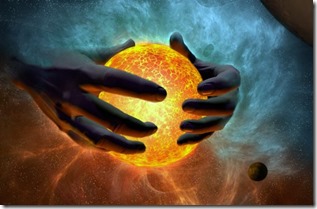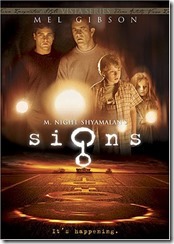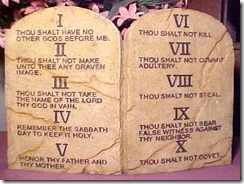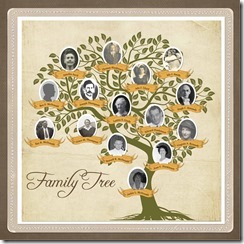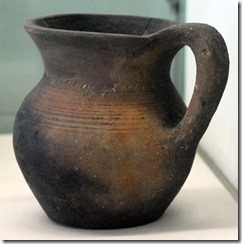Broadcast live streaming video on Ustream
Required Reading: a Study Bible
Key Read: The Big Picture – Tommy Nelson
Also Recommended:
The Bible Jesus Read – Philip Yancey
Walk Through the Old Testament – Wilkinson
(insights on key books: Job, Deuteronomy, Psalms, Ecclesiastes, and the Prophets)
Constable’s Notes on https://lumina.bible.org/bible
www.AnswersInGenesis.org (Creation/Evolution info)
Audio: Dispensationalism – Tommy Nelson
Why do we need the Old Testament???
Many people want to live solely from the New Testament. They get intimidated by all the parts of the Bible and feel the need to simplify the source of their faith to avoid having to deal with difficult issues or information. But you need the Old Testament. Divorcing it from the New is to live is to kill the foundations and the richness of the book you need to guide and instruct you through life. Without the Old Testament, you wouldn’t have:
· Stories of people walking with God throughout the length of their lives.
· Stories of people enduring suffering.
· An understanding of heaven, or of why our world was in the peril it’s in.
· A basis for understanding why Jesus died or what His death accomplished.
· A clear picture of the grand story God is writing.
· A record of the fact that God’s purposes and pursuit of mankind has ALWAYS been consistent.
First Things First: See God is Sovereign
God is timeless: God can see the beginning and end of the timeline of the earth, without imposing upon your ability to make free choices. It took my mind a while to wrap around this—so if it’s hard for you to grasp, that’s ok. Give it time. Think on it a bit. And trust minds that have given it more thought than yours before you decide this can’t be true. God’s knowledge is far more extensive than you could ever imagine. It appears He can even see probable futures (think of the character in Men in Black 3, but without the uncertainty regarding which future will come about).
21 “Woe to you, Chorazin! Woe to you, Bethsaida! For if the miracles that were done in you had been done in Tyre and Sidon, they would have repented in sackcloth and ashes long ago! 22 But I tell you, it will be more tolerable for Tyre and Sidon on the day of judgment than for you. 23 And you, Capernaum, will you be exalted to heaven? You will go down to Hades. For if the miracles that were done in you had been done in Sodom, it would have remained until today. 24 But I tell you, it will be more tolerable for the land of Sodom on the day of judgment than for you.”
(Matt 11:21-24, HCSB)
He knows what will happen, and He intentionally writes history like a mystery novel—He says and does things that will have greater significance ONLY when they are seen looking back thousands of years. We have the great privilege of seeing many of the amazing mysteries that He put in the history of the world:
- · We see that God was talking about Jesus when Adam and Eve first sinned.
- · We see that Abraham’s call to sacrifice Isaac would one day reflect His sacrifice of His own Son.
- · We see Jesus as the ultimate sacrifice, the Passover lamb, etc.
- · We can see Jesus in the Old Testament – the Angel of the Lord
God likes to build up our anticipation and focus the attention of the world on pivotal events. Tons of the Old Testament builds up anticipation for the person and work of Jesus—and we are not disappointed when He finally shows up on the scene…although no one is certain it’s really even the Messiah until He rises from the dead!
Spoiler Alert!
We love these surprises too!
(Star Wars)
- · “Luke I am your father”
- · Leia is Luke’s sister
(Signs)
- · The Little boy’s asthma keeps him from inhaling the alien’s poison.
- · The Little girl’s water phobia provides a weapon to fight the alien with.
- · Mel Gibson’s wife’s last words provide the action they need to take to combat the alien: “swing away”
- · Mel Gibson takes up the priesthood—his faith restored by these events.
(The Sixth Sense)
· Bruce Willis was dead
Make Sure to Think about BOTH meanings
However, if we only ask the question, “what does this mean now?” we can miss the true meaning of the event, or fail to learn a key lesson. We can learn a lot from what each event and moment meant by simply asking: “What did this mean then?”—and that is where all good Bible reading starts!
Covenants:
God makes standards clear in each era of human history by giving mankind covenants. Covenants are promises or contracts about how God plans to work.
· Adam and Eve’s covenant was that eating from the tree of the knowledge of good and evil would bring death. Their sign of the covenant was the tree of life, free for their consumption.
· The Noahic Covenant: After the flood God made a covenant with Noah and all mankind—He promised never to send a global flood ever again—He took away our fear or need to build another boat, and gave us a sign: the rainbow.
· The Abrahamic Covenant: God promised Abraham that if he would leave home and follow God, God would bless him with land, descendants, and a family that would bless the world. Circumcision of every man was the sign of their agreement. Genesis 12:1-3, 15:18, 17:1-2, 9-14; 18:18-19 (Mishpat & Tsadikah), 22:14-18, 26:2-5
· The Mosaic Covenant: God promised Israel that He would bless them if they would worship Him alone, according to His standards: the 10 Commandments…and that He would take away this blessing and cast them out of the land if they disobeyed. He gave them the sign of the Sabbath rest and the land. Exodus 19:5, 24:7
· The Davidic Covenant: God promised David that his descendants would retain kingship of Israel if they were faithful to God. The sign seems tied to the promise: kingship. Psalm 89:4, 29, 34, 39; 132:12; 2 Samuel 7:10-16
· The New Covenant: Jesus used the bread and the wine of Passover to create the new covenant with all believers. He left us baptism and the Holy Spirit’s entry into each person as signs of this New Covenant, and made it a movement, rather than a national affair of the Jewish nation, because they had rejected Him. Mark 14, Matthew 26
17 Then He took a cup, and after giving thanks, He said, “Take this and share it among yourselves. 18 For I tell you, from now on I will not drink of the fruit of the vine until the kingdom of God comes.” 19 And He took bread, gave thanks, broke it, gave it to them, and said, “This is My body, which is given for you. Do this in remembrance of Me.” 20 In the same way He also took the cup after supper and said, “This cup is the new covenant established by My blood; it is shed for you. (Luke 22:17-20, HCSB)
· The Kingdom covenant: At the end of the Old Testament, the prophets reveal God’s promise to restore Israel to a kingdom on earth that has perfect peace—a promise God will fulfill when Jesus returns to rule the earth. The sign on this covenant will be the kingship of Jesus in the land of Israel fully restored. Jeremiah 29:1-31:31-34
Purpose of the Torah/Law:
Moses wrote the first five books of the Bible as a firm foundation for God’s nation, Israel. His intention was to give the people a clear understanding that (1) there is only one God, and (2) how to run a nation with that reality in mind—with God as their king. He wrote a legal and constitutional code, as well as a history of their family roots to guide a nation of millions of people. Some of it is boring to read…so is our law code. Remember, it’s not a devotional for you…it has many purposes! All the Laws that follow the Ten Commandments seem to do 2 things: (1) define the appropriate way to enforce each of the commandments, and (2) explain how the ceremonial and cleanliness would function for the nation.
God’s rules show His heart to safeguard the nation against the effects of sin too. Many of His commands in the Old Testament point the nation of Israel toward health and cultural innovations that the people could not see the reasons behind. Food choices and purification, mold and mildew treatment, disease isolation and genetic deformations caused by incest. Though the nation simply sees these commands as a religious ritual, they are intended to provide a better health and quality of life for His people.
God wanted his people to stand out as a witness to the world for their high view of justice, love, and human life. They never lived and followed God fully to the point that they were the shining example of love to the world…they were rather unique, just not unique enough. The church fights this same problem. We don’t live differently enough from the world for people to consider us a safer place than the society around us.
Every part of the Bible is equally inspired and important in the history of humanity—but for you, every part is not equally helpful or applicable. Appreciate the parts God put in Scripture for other people, other times, or other seasons of life. Read everything that MIGHT be helpful. Don’t feel like you have to read every part the same number of times or get the same inspiration from every passage. Skip the geneologies. Only read the poetic and prophet parts with a study Bible or help beside you. That’s ok.
God often brings judgment in the OT:
We live in an age where God has extended great mercy to all peoples—His judgment is slow due to the church’s campaign to reach all nations. He has intentionally suspended most of His great judgments while the church spreads His message.
In the Old Testament, God’s agenda was different, and often included dramatic judgment. When people or a nation become so stubborn-hearted that they are a danger to everyone and it would be almost impossible for them to repent and come to know God—His punishment is the most loving act He can take. He must shock them out of their stubbornness, or even end their lives so they might stand before Him and see their stubbornness in its true light. Sometimes harsh punishment is the best thing for our children…but good parents exhaust all other options before resorting to these extremes.
10 A rebuke cuts into a perceptive person more than a hundred lashes into a fool. (Prov 17:10, HCSB)
3 A whip for the horse, a bridle for the donkey, and a rod for the backs of fools. (Prov 26:3, HCSB)
22 Though you grind a fool in a mortar with a pestle along with grain, you will not separate his foolishness from him. (Prov 27:22, HCSB)
37 “Jerusalem, Jerusalem! She who kills the prophets and stones those who are sent to her. How often I wanted to gather your children together, as a hen gathers her chicks under her wings, yet you were not willing! 38 See, your house is left to you desolate. (Matt 23:37-38, HCSB)
Through warnings and judgment you see just how dangerous certain sins really are and how quickly they multiply when they are not dealt with. Murder, idolatry, witchcraft and sexual sins are MAJOR issues, and as such, they call for justice to deter others from following the example of wicked people. Moreover, they harden us to the truth and lead us into self deception.
7 Therefore, as the Holy Spirit says: Today, if you hear His voice, 8 do not harden your hearts as in the rebellion, on the day of testing in the wilderness, 9 where your fathers tested Me, tried Me, and saw My works 10 for 40 years. Therefore I was provoked with that generation and said, “They always go astray in their hearts, and they have not known My ways.” 11 So I swore in My anger, “They will not enter My rest.” 12 Watch out, brothers, so that there won’t be in any of you an evil, unbelieving heart that departs from the living God. 13 But encourage each other daily, while it is still called today, so that none of you is hardened by sin’s deception. (Heb 3:7-13, HCSB)
The Flood shows you that humanity left unattended can quickly deteriorate to the point that all people have no desire or chance of following God.
The end of the Old Testament shows a people who have grown so hard of heart that God has to deport them to wake them up…and even then they struggle to follow Him. So in the end, God uses another method to wake them up: silence. For the next 400 years, God is going to meet them with silence. Like the descendants of Abraham in slavery, God is going to build their anticipation to the point of explosion, so that Jesus can walk onto the scene and make things amazing.
We also see that God judges differently between insiders and outsiders:
Through God’s judgments on other nations we see the standards that God has written into history, conscience, and nature: God judges those who take life and oppress others. God judges those who try to harm Israel. God judges those who don’t rely upon Him in hopes they will turn and seek Him. But God does not hold them to the standards of behavior that Israel lives under. They are not in covenant with Him and until they become His nation—God does not hold them to the standard of His nation.
God never sends a message of judgment without adding aspects of hope. God not only warns and tells of impending events that are coming to nations who have been evil far too long, He also always tacks on a distant future announcement, one that almost always gives the nation hope that there will be a restoration.
It’s not about the individual…only. It’s about the group too.
We think of our faith and our actions in isolation, God does not. God sees all of the ways that our sin effects our family, our friends, our kids, our society and our country. Every Jew had to trace his lineage back to Abraham and Jacob’s sons. They felt the weight of upholding the honor of their current and past family. Their land was passed down from father to son, not sold to the highest bidder. We need to regain a sense of responsibility toward our family, city and country. We focus on winning an election by persuasion. So often God puts the leader in power who best reflect the people’s individual values and behaviors of that group. We need to live and work to the best of our ability—and we need to pray and work toward the transformation of our neighborhoods, city, state and country by changing people in hopes of changing the world. Not by imposing our values on others, but by living in such a way that people desire to adopt our values and see them reflected in our society.
Because God works on a national scale, as well as an individual one, He sends punishment upon nations. And because He has a national agreement with Israel, He holds them to a higher standard, and expects them to enforce their law through courts and government. He calls them out according to the Law He gave them. Other nations He sends judgment upon for general moral violations: murder, abuse of the weak, attacking Israel, sexual immorality, and idolatry.
So the men turned from there and went toward Sodom, but Abraham still stood before the Lord. Then Abraham drew near and said, “Will you indeed sweep away the righteous with the wicked? Suppose there are fifty righteous within the city. Will you then sweep away the place and not spare it for the fifty righteous who are in it? Far be it from you to do such a thing, to put the righteous to death with the wicked, so that the righteous fare as the wicked! Far be that from you! Shall not the Judge of all the earth do what is just?” And the Lord said, “If I find at Sodom fifty righteous in the city, I will spare the whole place for their sake.” ~ Genesis 18:22-26
I will not punish your daughters when they play the harlot, Or your brides when they commit adultery, For the men themselves go apart with harlots, And offer sacrifices with temple prostitutes; So the people without understanding are ruined. ~ Hosea 4:14
The Church is a movement without civil courts, government, etc, and we don’t police each others actions in a legal sense. We simply treat disobedient people as outsiders—because that’s what their behavior reflects. We especially don’t police non-Christians. We mourn and advise others because we know sin hurts both the people who commit it and God, but we also know that the core issue is a heart that’s not connected to Jesus.
6 Your boasting is not good. Don’t you know that a little yeast permeates the whole batch of dough? 7 Clean out the old yeast so that you may be a new batch. You are indeed unleavened, for Christ our Passover has been sacrificed. 8 Therefore, let us observe the feast, not with old yeast or with the yeast of malice and evil but with the unleavened bread of sincerity and truth. 9 I wrote to you in a letter not to associate with sexually immoral people. 10 I did not mean the immoral people of this world or the greedy and swindlers or idolaters; otherwise you would have to leave the world. 11 But now I am writing you not to associate with anyone who claims to be a believer who is sexually immoral or greedy, an idolater or verbally abusive, a drunkard or a swindler. Do not even eat with such a person. 12 For what business is it of mine to judge outsiders? Don’t you judge those who are inside? 13 But God judges outsiders. Put away the evil person from among yourselves. (1Cor 5:6-13, HCSB)
The Same God, Then and Now
God has changed his pattern of working in the world—He has moved from emphasis of Himself through the nation of Israel to emphasis through an international, multiethnic movement. That has changed the way prophecy and judgment and revelation work…but it has not changed who God is or how He relates to people. If He could ever get people to embrace the person He truly is, then He would get the followers He desires.
People become like the god they worship. The key question for you is…is your picture of God accurate? How have you molded God to fit your lifestyle preferences? Does your God love you and know what’s best, or is He incompetent, too weak to intervene, or too uncaring?
When God was asked for His name, He answered with the phrase, “I am what I am” or possibly, “I am the unchanging one.” He commanded His people to avoid any images, because He wanted to keep them from giving Him human characteristics, or animalistic ideals. God is the same loving, personal God He has always been. He has walked personally with people since He walked with the first man and woman, Adam and Eve, in the garden. He desires to create paradise with us as the managers and centerpiece over the rest of creation.
Modern Scholarship and the Bible
When you use google to research the Bible or watch a PBS special on the subject, you’ll discover that there is a substantial collection of scholars who want to “read between the lines” of the Bible and try to fit all the puzzle pieces of its events together differently. Because most other ancient societies have grown from belief in multiple gods to worship of one god, they believe that the Hebrews must have done the same, and simply rewrote history to hide this truth. They don’t trust the Bible, they read it only as propaganda. They propose all kinds of goofy theories about Genesis originally being 5 different documents, etc.
Excerpt from Wikipedia on the authorship of Genesis:
For much of the 20th century most scholars agreed that the five books of the Pentateuch—Genesis, Exodus, Leviticus, Numbers and Deuteronomy—came from four sources, the Yahwist, the Elohist, the Deuteronomist and the Priestly source, each telling the same basic story, and joined together by various editors.[10] Since the 1970s there has been a revolution in scholarship: the Elohist source is now widely regarded as no more than a variation on the Yahwist, while the Priestly source is increasingly seen not as a document but as a body of revisions and expansions to the Yahwist (or “non-Priestly”) material. (The Deuteronomistic source does not appear in Genesis).[11]
In composing the Patriarchal history the Yahwist drew on four separate blocks of traditional stories about Abraham, Jacob, Judah and Joseph, combining them with genealogies, itineraries and the “promise” theme to create a unified whole.[12] Similarly, when composing the “primeval history” he drew on Greek and Mesopotamian sources, editing and adding to them to create a unified work that fit his theological agenda.[13] The Yahwistic work was then revised and expanded into the final edition by the authors of the Priestly source.[14]
Examples of repeated and duplicate stories are used to identify the separate sources. In Genesis these include three different accounts of a Patriarch claiming that his wife was his sister, the two creation stories, and the two versions of Abraham sending Hagar and Ishmael into the desert.[15]
This leaves the question of when these works were created. Scholars in the first half of the 20th century came to the conclusion that the Yahwist was produced in the monarchic period, specifically at the court of Solomon, and the Priestly work in the middle of the 5th century BC (the author was even identified as Ezra), but more recent thinking is that the Yahwist was written either just before or during the Babylonian exile of the 6th century, and the Priestly final edition was made late in the Exilic period or soon after.[5]
As for why the book was created, a theory which has gained considerable interest, although still controversial is “Persian imperial authorisation”. This proposes that the Persians, after their conquest of Babylon in 538 BC, agreed to grant Jerusalem a large measure of local autonomy within the empire, but required the local authorities to produce a single law code accepted by the entire community. The two powerful groups making up the community—the priestly families who controlled the Temple and who traced their origin to Moses and the wilderness wanderings, and the major landowning families who made up the “elders” and who traced their own origins to Abraham, who had “given” them the land—were in conflict over many issues, and each had its own “history of origins”, but the Persian promise of greatly increased local autonomy for all provided a powerful incentive to cooperate in producing a single text.[16]
Modern scholars like to argue that Israel made up their belief in God as they went, just like all the cultures around them. They can even sounds rather convincing. They point to the similarities in some of the things that the Jewish nation did, and say that they were borrowing ideas from the nations around them and that destroys their belief that God was speaking uniquely to them. We look at the way the Jews borrowed ideas and think: yes, that’s how God always communicates, in a way that uses culture to show His truth! Jesus and the apostles did the same thing in their time, using pagan temples and cultural concepts to communicate truth in a way that would make sense to the people. Jesus always told stories that the crowd around him related to. He put truth in words they not only understood, but that they related to experientially and emotionally. We do the same thing today—using other religious ideas that a person already knows to communicate the ideas that God placed in the Bible. God doesn’t have to do everything in a crazy unique way…He likes to speak to us in a way we can grasp. He causes verses about Jesus in the Koran to stand out to a person He is speaking to, talks to children like a best friend or through a TV show like veggie tales, etc.
Would you drink water out of this?
Or would you prefer this?
Presentation matters. The water above might be better for you…but in our society, it looks dirty…it feels foreign.
If God were to feed us in today’s society, He would probably multiply a basket of fish and fries, rather than a raw fish and a loaves of barley bread. He would give us something familiar. That’s the way He typically works.
Anyone can make a great argument for their position. Be sure and step back and ask some good questions before you let the popularity or intellectually-stimulating ideas they present mislead you.
- · Is God really incapable of keeping mankind from corrupting His message to the world?
- · Would He really let his message be corrupted so that no one could know the truth about a saving relationship with Him until the modern era?
- · How arrogant must we be to think that we can look back 6,000 years to a time and a culture and a language we don’t know, and think we can read between the lines and get the truth!
- · What assumption is this person making about the Bible that I might not want to make? For example:
- o I don’t see supernatural things happen in the present day, with my own eyes, therefore I choose to believe that they never happened.
- o I tend not to trust people. I believe they are all manipulative and dishonest…so I approach the Bible assuming they are trying to manipulate me, and trying to figure out what I can believe.
- · How much confidence do I really want to put in present scientific theory, when the history of theories shows a record of crackpot ideas which were once accepted as fact:
- o We only use 10% of our brain
- o Disease is caused by foul smelling air
- o Sickness can be treated by releasing blood
- o The world is flat
- o The earth is at the center of the universe
- First law: When viewed in an inertial reference frame, an object either remains at rest or continues to move at a constant velocity, unless acted upon by an external force.[2][3]
- Second law:
 . The vector sum of the forces F on an object is equal to the mass m of that object multiplied by the acceleration vector a of the object.
. The vector sum of the forces F on an object is equal to the mass m of that object multiplied by the acceleration vector a of the object. - Third law: When one body exerts a force on a second body, the second body simultaneously exerts a force equal in magnitude and opposite in direction on the first body.
Example: In today’s modern era, we are beginning to dismiss Newton’s three laws of motion. They aren’t quite accurate in the way they describe motion on large and nano scales. These were accepted as gospel truth for a long time in the scientific community…soon they will be considered silly superstitious explanations of the truth.
10 percent of your brain in movies: The Socerer’s Apprentice, Lucy, Flight of the Navigator
http://en.wikipedia.org/wiki/Superseded_scientific_theories
When you test the truth, you can’t just use the test: Does the Bible say this? As your guide. Instead, ask the question: does the Bible say this, and have Jews/Christians believed this to be true historically?
Creation/Evolution:
Evolution is a HUGE topic and a dominating perspective in science today…but I believe it’s VERY poor science and that like the theory that the world is flat…one day generations will look back on evolutionary theory and call us foolish for ever entertaining the idea. I think evolution has handed us all their good-looking arguments and refused to present their problems because they have decided ahead of time that they will not accept any theories that break the laws of nature: no miracles, no God intervention.
You can believe in evolution and be a Christian. Many do. But let me challenge you to consider a few crucial things regarding creation and our faith system:
1. God looks a lot bigger when He can simply speak the very universe into existence at a moment’s notice.
2. There’s something incredibly degrading about mankind evolving from monkeys…and it blurs the line between what makes a human being different than animals. It also greatly blurs the line regarding mankinds original sin, and when why physical death would have existed in the perfect world.
3. Heaven is a lot more real when you picture it as a place where everything was at peace and even physical death was unknown. Where eternal life could have even existed on earth. It’s no wonder people lived for 800 years if the world really was perfect. When you think that all life is the product of millions of awful degrading painful mutations that contained a few good ones producing life, it makes God seem rather stupid and powerless.
4. Evolution begs us to place a different value on human beings based on the perfection of their genetics. We could have a race of super humans that deserves special privileges, just like ancient kings were believed to deserve special treatment because of their bloodlines.
5. The Danger of dismissing or reinterpreting things in the Bible: When you begin to accept or reject some things as being actual events vs mythical moral stories, how can you create a standard that everyone can go by, rather than relying upon your own faulty judgment or the judgment of a few scholars 6,000 years removed from the actual events and writing?
6. It has issues too, but young earth (literal) belief in the creation of the world and a literal understanding of the flood make VERY good and accurate use of the data we can observe today. It’s a better scientific explanation of the facts, in my opinion.
Spend some time checking out www.answersingenesis.com or visit their museum.
If you’d like to investigate the creation/evolution debate more, I suggest starting with this 1 hour lecture video on the 6 days of creation (it’s a little old, but good)
Interpretation Keys:
Key Tool: Study Bible & Notes
Context always matters. What Did It Mean Then?
- · What that acceptable behavior at the time?
- · Was that related to some religious or cultural practice?
- · Is it descriptive, or prescriptive?
- · Visualize the Event! (shekinah glory, solomon’s temple)
- · Look at the map!
Literature Analysis is important!
- · Looking at the whole document, not just the parts!
Read the book intros and the info about major themes. - · Pay Attention to what gets repeated!
Focus and learn from key subjects: What did God want me to learn from…
- · this character?
- · this event?
- · this mistake or triumph?
The BIGGEST messages in the Old Testament:
1. God can be trusted!
a. Who is in control? God is in control!
b. Who has a plan? God
c. What has He promised?
d. Don’t try to see the big picture—just play your part faithfully. You don’t get to see all the epic story, no one does!
2. God is Holy!
a. Holiness demands respect and obedience.
b. Injustice demands punishment. Sacrifice or Judgment.
c. God is patience and merciful, but not disinterested, powerless, or ignorant.
3. Sin reaps CRAZY consequences!
a. Where did evil come from? Mankind!
b. Who should we blame? Ourselves and our ancestors!
c. Who does it effect? Everyone!
4. Something BETTER is coming with the Messiah – Heaven on Earth!
Homework:
Focus on and learn from one key subject this week by answering the question: What did God want me to learn from…
- · this character?
- · this event?
- · this mistake or triumph?

